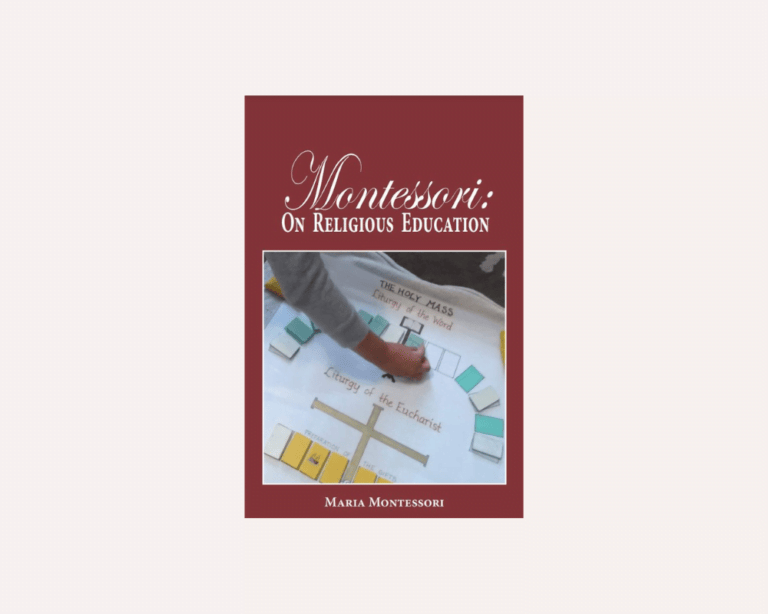Friendliness to Error
Catholic Montessori is countercultural in many ways.
A Montessori principle that was completely out of my growing-up experience was Friendliness to Error.
Attitudes from School
From attending a parochial P-8 school and then a prestigious Catholic college prep school for girls, here are a few ideas ingrained into my mind and reinforced by my upbringing:
- Grades and class rank are the most important measures of success
- Anything less than perfection – i.e., no mistakes – is not acceptable
- Public recognition of achievement matters more than the personal satisfaction and joy of learning
- If you likely won’t come in first in a competition, there is no point in competing. Find something in which you can be first.
Basically, I learned the attitude, “First place is all that matters. Second place means being the first loser.”
Deal with fewer tantrums in 3 days (or less!)
Side Effects
These ideas had rather nasty side effects:
- Since grades and class rank were the most important measures of success, cheating was rampant in the schools I attended
- Since mistakes weren’t acceptable, classmates developed high anxiety and/or depression over anything less than 100% on an assignment
- Since public recognition was valued over learning, students crammed to score high grades on the test but rarely retained the knowledge the following semester
- When first place seemed out of reasonable reach, students became afraid to even try new things
With this as my backdrop, error became to me something to be hated, feared, and avoided at all costs – certainly not something that evoked friendliness, of all things!
The Montessori approach
Supposing we study the phenomenon of error in itself; it becomes apparent that everyone makes mistakes. This is one of life’s realities, and to admit it is already to have taken a great step forward. If we are to tread the narrow path of truth and keep our hold upon reality, we have to agree that all of us can err; otherwise we should all be perfect. So it is well to cultivate a friendly feeling towards error, to treat it as a companion inseparable from our lives, as something having a purpose, which it truly has. (p 246)
The absorbent mind, holt, rinehart, and winston, 1967, p 246-247
Many errors correct themselves as we go through life. The tiny child starts toddling uncertainly on his feet, wobbles and falls, but ends by walking easily. He corrects his errors by growth and experience. We deceive ourselves if we imagine we are always following life’s highway towards perfection. The truth is that we make mistake after mistake, and do not correct ourselves. We fail to realize our faults; we live in a state of illusion shut off from reality. The teacher who sets out with the idea that she is perfect, and never notices her own mistakes, is not a good teacher. Whichever way we look, a certain “Mr. Error” is always to be seen! If we seek perfection, we must pay attention to our own defects, for it is only by correcting these that we can improve ourselves. We have to face them in the full light of day and realize their existence as something unavoidable throughout life.
As a homeschooling mom, the goal for my children is understanding of the material they’re studying. Grades, such as automatically calculated in an online math course, are helpful to me as a measure of understanding. Grades are a guide, not a goal.
Even with this approach towards grades, Friendliness to Error is an attitude I have to actively encourage in our children. They naturally want to do well, so they hate making mistakes. I keep reminding our children that mistakes can be helpful when we take the time to learn from them, rather than just be grumpy about messing up.
More powerful, though, than reminding them in words, is the example of my own behavior – how I respond to mistakes made by myself or by them. Montessori’s words reflect the instruction of St. Francis de Sales:
One important direction in which to exercise gentleness, is with respect to ourselves, never growing irritated with one’s self or one’s imperfections; for although it is but reasonable that we should be displeased and grieved at our own faults, yet ought we to guard against a bitter, angry, or peevish feeling about them. Many people fall into the error of being angry because they have been angry, vexed because they have given way to vexation, thus keeping up a chronic state of irritation, which adds to the evil of what is past, and prepares the way for a fresh fall on the first occasion. Moreover, all this anger and irritation against one’s self fosters pride, and springs entirely from self-love, which is disturbed and fretted by its own imperfection. What we want is a quiet, steady, firm displeasure at our own faults.
introduction to the devout life, chapter ix, on gentleness towards ourselves







